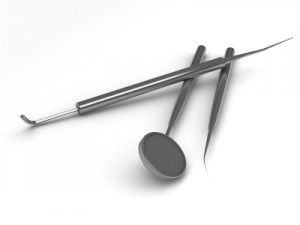 What’s the most common dental complaint I hear these days? In my Kitsilano practice, where most of our patients are between their twenties and forties, the most frequently mentioned ailment during the initial appointment with new patients is teeth sensitivity. I’ll briefly discuss the top three causes of teeth feeling sensitive with cold, acids, or sweets.
What’s the most common dental complaint I hear these days? In my Kitsilano practice, where most of our patients are between their twenties and forties, the most frequently mentioned ailment during the initial appointment with new patients is teeth sensitivity. I’ll briefly discuss the top three causes of teeth feeling sensitive with cold, acids, or sweets.
These are stressful times we live in and many of us grind our teeth – usually in our sleep – as a subconscious outlet for the stress in our lives. Grinding (or bruxism) can result in thinning of the chewing surfaces’ protective outer layer called enamel, allowing sensations to travel more easily to the inner, more sensitive layer of the teeth called dentin. Think you might be grinding your teeth? Monitor yourself during the day for clenching. Chances are, if you catch yourself clenching your teeth during your day, you’re probably grinding your teeth at night in your sleep. Other tell-tale signs of grinding are waking up with stiff or sore jaw muscles, and if you check your molars in the mirror, seeing smoothed chewing surfaces on your back teeth. Management of bruxism often consists of using a sensitivity toothpaste to control the discomfort, and a night guard to prevent further wear.
Another common cause of sensitivity is gum recession. This is when the gums have receded toward the roots of the teeth and the sensitive, slightly yellow, root surfaces become exposed. Brushing your teeth too vigorously or using a ‘medium’ toothbrush are usually responsible for gum recession, but other causes may include poor oral hygiene, a family history of periodontal problems, and, you guessed it: grinding! Recession is not reversible and in very advanced cases, gum surgery is an effective treatment. To help prevent gum recession, always brush gently using a soft toothbrush.
The least common reason for teeth sensitivity, yet, ironically, the reason most often cited by my self-diagnosing patients is cavities. Modern dentistry has done a good job of cavity prevention in most young Canadians and if you’re visiting your dentist on a regular basis and getting dental x-rays with your exams, cavities should never get to a stage where they’re causing discomfort.
The take-home message? If you have sensitive teeth, get them examined regularly so that a proper diagnosis can be made and the appropriate management options provided. Lastly, whatever you can do to minimize the stress in your life is probably going to be healthier for your teeth too!
 Dr. Chris Kan is a Kitsilano Dentist and since 1998, has been practicing family and cosmetic dentistry with a conservative, “less is best” approach. By integrating innovative technologies with a passion for excellence, Dr. Kan and his team provide thorough, comprehensive care for everyone from toddlers to seniors. Contact Dr. Kan at 604-224-8000 or at www.arbutusdentist.com
Dr. Chris Kan is a Kitsilano Dentist and since 1998, has been practicing family and cosmetic dentistry with a conservative, “less is best” approach. By integrating innovative technologies with a passion for excellence, Dr. Kan and his team provide thorough, comprehensive care for everyone from toddlers to seniors. Contact Dr. Kan at 604-224-8000 or at www.arbutusdentist.com



